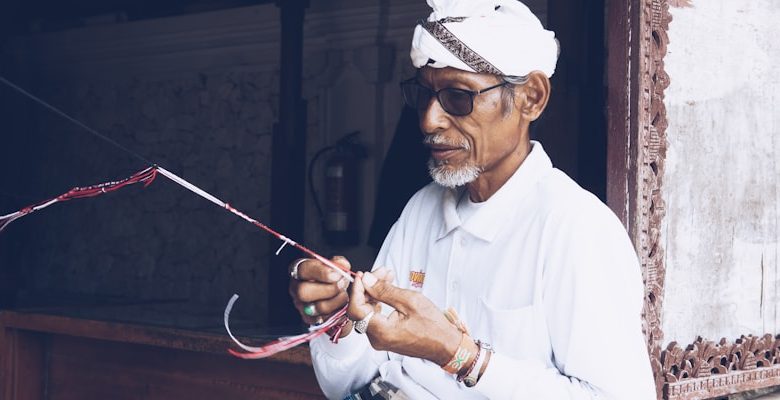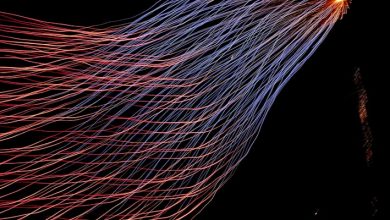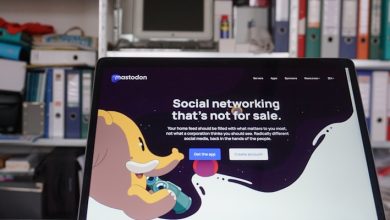The Role of DAOs in Decentralized Decision-Making

- Understanding DAOs and their impact on decentralized decision-making
- Exploring the concept of DAOs and how they are changing traditional governance models
- The rise of DAOs: A new era of decentralized decision-making
- Challenges and opportunities in implementing DAOs for decision-making
- Case studies: Successful examples of DAOs in action
- The future of decentralized decision-making: What role will DAOs play?
Understanding DAOs and their impact on decentralized decision-making
Decentralized Autonomous Organizations (DAOs) are revolutionizing the way decisions are made within communities. DAOs are entities that operate through smart contracts on a blockchain, allowing for transparent and automated decision-making processes.
DAOs have a significant impact on decentralized decision-making by enabling community members to participate in governance without the need for a central authority. This decentralized approach ensures that decisions are made collectively and transparently, fostering trust and inclusivity within the community.
Through the use of token-based voting systems, DAOs allow members to propose, discuss, and vote on various proposals that impact the organization. This ensures that decisions are made based on the collective wisdom of the community, rather than the interests of a select few.
By leveraging blockchain technology, DAOs provide a secure and immutable record of all decisions and transactions, ensuring accountability and preventing fraud. This transparency enhances trust among community members and strengthens the overall governance structure of the organization.
In conclusion, DAOs play a crucial role in decentralized decision-making by empowering communities to govern themselves in a transparent and inclusive manner. As the adoption of blockchain technology continues to grow, DAOs are poised to become a cornerstone of decentralized governance across various industries and sectors.
Exploring the concept of DAOs and how they are changing traditional governance models
Decentralized Autonomous Organizations (DAOs) are revolutionizing traditional governance models by leveraging blockchain technology to enable decentralized decision-making processes. DAOs operate on smart contracts, allowing participants to vote on proposals and execute decisions without the need for intermediaries.
DAOs are changing the way organizations are structured and governed, shifting power from centralized authorities to a network of stakeholders. This decentralized approach promotes transparency, accountability, and inclusivity in decision-making processes, ensuring that all participants have a voice in shaping the organization’s direction.
By removing the need for a central authority, DAOs eliminate single points of failure and reduce the risk of corruption or manipulation. This new governance model fosters trust among participants and empowers individuals to contribute to the collective decision-making process.
As DAOs continue to gain traction, they are challenging traditional notions of governance and paving the way for a more democratic and equitable society. The potential impact of DAOs on various industries, including finance, governance, and social impact, is significant, offering new possibilities for collaboration and innovation.
The rise of DAOs: A new era of decentralized decision-making
Decentralized Autonomous Organizations (DAOs) are revolutionizing the way decisions are made in various sectors. DAOs operate on blockchain technology, enabling members to vote on proposals and execute smart contracts without the need for intermediaries. This new era of decentralized decision-making empowers individuals to have a direct say in the direction of organizations and projects.
Challenges and opportunities in implementing DAOs for decision-making
Implementing DAOs for decision-making presents both challenges and opportunities. On one hand, the decentralized nature of DAOs can lead to slower decision-making processes, as consensus needs to be reached among a diverse group of stakeholders. This can result in delays and inefficiencies in decision-making, especially when urgent actions are required.
On the other hand, DAOs offer the opportunity for more transparent and inclusive decision-making processes. By allowing stakeholders to participate directly in decision-making through voting mechanisms, DAOs can help ensure that decisions are made in the best interest of the community as a whole. This can lead to greater trust and buy-in from participants, ultimately strengthening the overall governance structure of the organization.
Overall, the key challenge in implementing DAOs for decision-making lies in finding the right balance between efficiency and inclusivity. By addressing issues such as scalability, governance mechanisms, and decision-making processes, organizations can unlock the full potential of DAOs in decentralized decision-making. It is essential to continuously evaluate and iterate on these processes to ensure that DAOs remain effective and responsive to the needs of their stakeholders.
Case studies: Successful examples of DAOs in action
DAOs have demonstrated their potential to revolutionize decision-making processes in various industries. Here are some successful examples of DAOs in action:
1. **The DAO**: Perhaps the most famous example of a DAO, The DAO was created on the Ethereum blockchain to serve as a venture capital fund. Members could vote on investment proposals using tokens, with the majority determining the outcome. Despite facing challenges such as a major security breach, The DAO showcased the power of decentralized decision-making.
2. **MolochDAO**: This DAO, named after a mythical demon, focuses on funding Ethereum development projects. Members pool their resources and vote on which projects to support. MolochDAO has been instrumental in funding critical infrastructure projects within the Ethereum ecosystem.
3. **MakerDAO**: MakerDAO is a decentralized autonomous organization that governs the stablecoin Dai. Holders of the MKR token can vote on changes to the protocol, such as adjusting stability fees or collateral requirements. MakerDAO has successfully maintained the stability of Dai despite market fluctuations.
4. **Aragon**: Aragon is a platform that allows organizations to create and manage DAOs easily. By providing tools for governance, fundraising, and operations, Aragon has empowered numerous DAOs across different sectors. Its user-friendly interface has made decentralized decision-making more accessible.
These case studies demonstrate the diverse applications of DAOs and highlight their potential to disrupt traditional centralized structures. As DAOs continue to evolve and gain traction, they are poised to play an increasingly significant role in shaping the future of decentralized decision-making.
The future of decentralized decision-making: What role will DAOs play?
Decentralized Autonomous Organizations (DAOs) have been gaining attention as a new way to make decisions without traditional hierarchies or centralized control. These organizations are run by smart contracts on the blockchain, allowing for transparent and secure decision-making processes.
DAOs have the potential to revolutionize how decisions are made in various industries, including finance, governance, and supply chain management. By enabling stakeholders to vote on proposals and participate in the decision-making process, DAOs can foster greater collaboration and autonomy.
As we look to the future, the role of DAOs in decentralized decision-making is likely to continue to grow. These organizations offer a way to increase transparency, reduce corruption, and empower individuals to have a say in how resources are allocated and managed.



